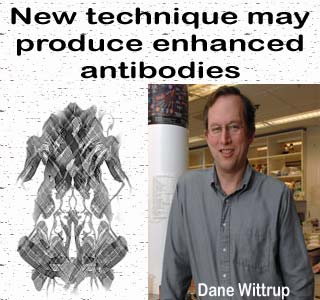
It’s stated that therapeutic antibodies seemingly have great potential for treating various diseases including cancer. However, evidently the belief that only the mechanism of mammalian cells can build the sugar attachment is believed to have been a hurdle to their usage.
Antibodies are believed to be a crucial element of the immune system. In the body, these antibodies evidently identify the bacteria and viruses. It’s also said that each antibody is limited to a particular pathogen. On detecting the invader, the antibody seemingly couples with the pathogen, followed by its binding to the immune cells. After this, the antibodies apparently trigger the immune cells to fight against the pathogens.
Senior author of the paper, Dane Wittrup, the C.P. Dubbs Professor of Chemical Engineering, Biological Engineering, member of the Koch Institute for Integrative Cancer Research, says that, “To date, people have faced limitations in how they were going to make these antibodies because they appeared to require these (sugar) structures.â€
The MIT authors state that the antibodies apparently don’t require attached sugar to pair with the immune cells. Seemingly earlier it was thought that the antibodies needed this attached sugar in order to complete the binding process with the immune cells, like the natural killer (NK) cells and macrophages. This latest discovery says that apparently antibodies mutant forms without sugar attachments were found to bind to the immune cells.
It seems that this discovery may aid in the development of therapeutic antibodies, which may evidently be mass-produced with the help of fungi or bacteria. This procedure may seemingly prove to be more cost-effective and quicker, as compared to the use of mammalian cells for the production.
In addition to the discovery of non requirement of sugar attachment in antibodies, the authors have also raised questions as to the reason why the use of sugar attachments was initiated in the first place in antibodies at all.
This research was funded by the National Cancer Institute and the National Institutes of Health.
This paper is published online in the Proceedings of the National Academy of Sciences.
